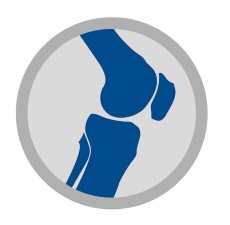Osteoarthritis Aotearoa New Zealand OA Summit 2022
The Te Anga Kaikōiwi o Aotearoa New Zealand Osteoarthritis Research Network conference and the Osteoarthritis Aotearoa New Zealand 2022 Summit, organised by CMOR and the University of Otago Osteoarthritis Aotearoa Research Network in association with Arthritis New Zealand, brought together clinicians, researchers, and others with interest in managing osteoarthritis (OA) in Aotearoa New Zealand.
The Osteoarthritis Aotearoa Research Network (OARNet), supported by funding from the University of Otago, aims to progress research excellence across the spectrum of research contributing to new knowledge relevant to osteoarthritis; extend research strength in Aotearoa New Zealand by advancing OA research and facilitating national and international collaboration; and build capability and capacity in OA research by supporting research training and early- and mid-career development of the OA research workforce. The OA Research Network Conference (17 November 2022) brought together international and national researchers to present and discuss current OA research, facilitate collaboration, and plan how future research can contribute to achieving an OA Strategy for Aotearoa New Zealand.
The Osteoarthritis Aotearoa New Zealand (OAAoNZ) 2022 Summit built on the foundations laid by the inaugural Osteoarthritis Aotearoa New Zealand Basecamp in July 2021 to continue our work to co-create a national Model of Care for osteoarthritis care in Aotearoa New Zealand, and to develop a list of national priorities in osteoarthritis research to support these aims. The Summit brought together researchers with leaders from government, Te Whatu Ora Health NZ, Te Aka Whai Ora Māori Health Authority, colleagues involved in primary care, secondary and tertiary care services, healthcare commissioning and research funding, and consumers living with OA. Presentations covered issues and themes such as considering Te Tiriti o Waitangi when designing OA services, challenges and opportunities in relation to managing weight, a Te Ao Māori approach in primary care, and the role GPs play in OA management. Attendees also heard panel discussions focusing on priorities for public and patient partnership and equitable health delivery innovation for people with OA and culturally responsive models of care for the management of OA.
We thank our partners Arthritis New Zealand, Victoria University of Wellington, the Maurice & Phyllis Paykel Trust, Össur, Physiotherapy New Zealand, and AUT for their ongoing support for this initiative.
